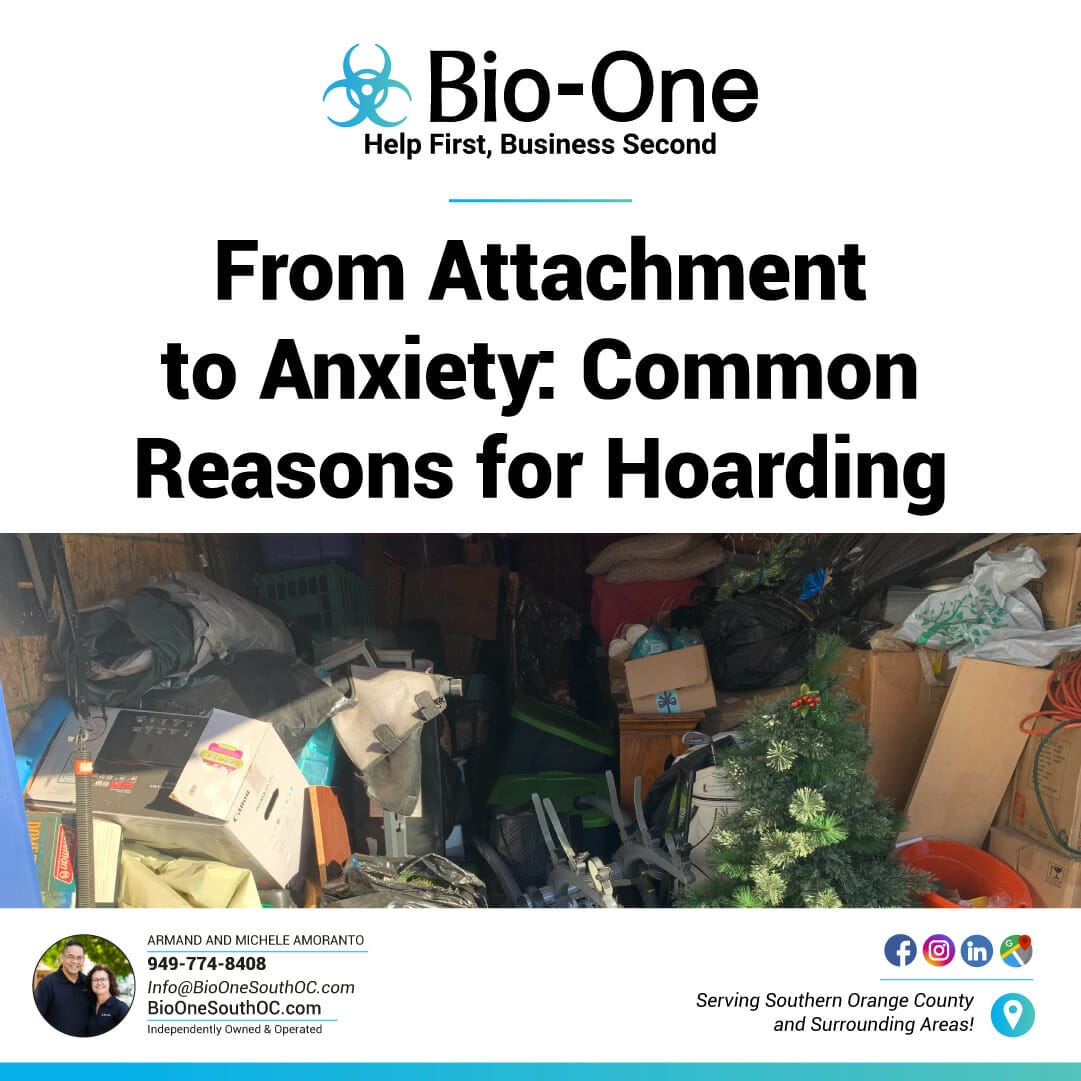
Hoarding is a form of obsessive-compulsive disorder, where individuals have difficulty parting with possessions, regardless of their actual value. This behavior often results in excessive accumulation and can pose significant challenges, including unsafe living conditions and health hazards. While hoarding can manifest in different ways, the root causes of this behavior are typically similar. In this article, we will explore some of the most common reasons for hoarding and how they contribute to a person's attachment to their possessions.
One of the main reasons individuals may develop hoarding tendencies is due to a past traumatic event or significant loss. This can include the death of a loved one, divorce, or even extreme financial hardship. In these cases, hoarding becomes a coping mechanism for dealing with the emotional pain and attempting to regain a sense of control in their lives.

For example, someone who has lost a family member may begin hoarding items that belonged to them as a way to hold onto their memory and feel connected to them. Similarly, someone who has experienced a traumatic event may hold onto items that they associate with the event as a way to cope with the fear and anxiety it has caused.

Hoarding disorder is linked to other mental health conditions. Depression and anxiety are two common contributing factors that can trigger hoarding behaviors. Those with hoarding tendencies often report feelings of comfort and safety when they are surrounded by their possessions. This is because the collection of items provides them with a false sense of security. Interestingly, people with dementia and Alzheimer's disease can also exhibit symptoms of hoarding, which may be due to their inability to organize and declutter their living space.
Image by Freepik
Perfectionism is among the most common reasons for hoarding. People who struggle with perfectionism often attach sentimental value to their possessions, believing that they must keep everything in order to maintain a perfect life. They may also fear making mistakes, leading them to hold onto items that they believe they may need in the future.
Studies have shown a correlation between childhood trauma and hoarding behaviors in adulthood. Children who experienced neglect or abuse may develop hoarding tendencies as a way to cope with the lack of control they had over their living environment during their formative years. Hoarding can also be a result of growing up in poverty, where individuals learn to hold onto items out of fear of not being able to afford them in the future.
Image by yanalya on Freepik

Research also suggests that there may be a genetic component to hoarding behaviors. Some studies have found that individuals with a family history of hoarding are more likely to exhibit similar behaviors. This could be due to inherited traits such as difficulty making decisions, impulsivity, and emotional attachment to objects.
The accumulation of possessions can make it difficult to safely navigate living spaces, increasing the risk of trips and falls. Hoarding can also pose a fire hazard, with clutter blocking emergency exits and making it challenging to access electrical outlets. Furthermore, the excess accumulation of food, trash, and organic waste can lead to health hazards like mold, pests, and even deadly diseases.
Yes, there is. Treatment for Hçoarding Disorder might be ongoing and usually involves therapy and medication. Counseling provides those with hoarding tendencies the tools they require to declutter and manage their behaviors. Cognitive-behavioral therapy (CBT) is an effective treatment method that targets negative thoughts, emotions, and behaviors and works to replace them with better ones. Medication can be prescribed for individuals who have anxiety and depression associated with hoarding.

Consult the numerous options and resources available by visiting the International OCD Foundation, in their Hoarding Section.
At Bio-One, we understand the importance of an orderly and safe environment and offer cleaning and disinfection services for homes affected by hoarding. Our team of experienced professionals works to restore properties to their former glory, removing any health hazards and providing a safe living environment for families and businesses! We are fully insured, licensed, and trained and recognize that hoarding is a sensitive issue that deserves only the utmost respect and discretion. Contact us today to learn more.